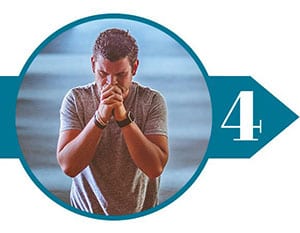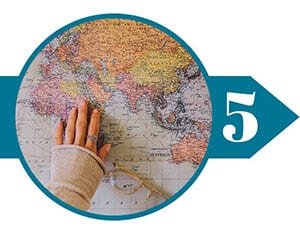WILLS POINT, TX – Gospel for Asia (GFA World and affiliates like Gospel for Asia Canada) founded by Dr. K.P. Yohannan – Discussing Sundar, blind at birth, obscure and impoverished, the sufferings his family experienced, and the calling and life of a Gospel for Asia Missionary in the grace and love of God.
O
ne chilly Tuesday, a blind baby boy was born into an impoverished, illiterate family in a remote village tucked into the foothills of the Himalayas. The parents loved their little boy and named him Sundar.
The small family had love, but little else. Debalal, Sundar’s father, had partial paralysis but was still able to work as a day laborer collecting wood to sell. To help make ends meet, Sundar’s mother also worked. Much of their income went to medical treatments for Sundar, but the little boy’s world remained shrouded in darkness.
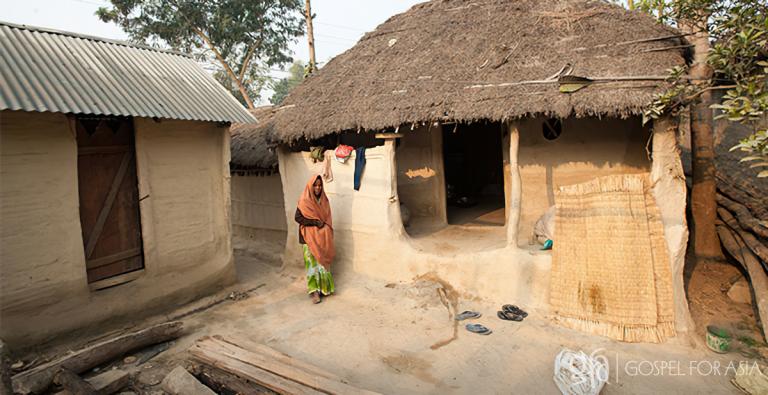
Neighbors looked on Sundar’s family with dismay, counting the family’s poverty, the father’s lameness and the son’s blindness as hardships too difficult to endure.
“Sundar will never receive sight. He is a burden for you,” they said. “Take him and throw him into the river instead of facing so many problems in life.”
“Take him and throw him into the river instead of facing so many problems in life.”
Debalal and his wife ignored the ill advice and continued to care for their son. But young Sundar began to believe what he had heard his neighbors say about him, especially when he saw his parents’ sorrow.
A little brother soon joined Sundar. The family of four eked out what life they could, faithfully worshiping their traditional deities.
Struggling through life, the family could not foresee the joy waiting just ahead.
7-year-old Sundar Experiences a Miracle, Family Transforms
One day, after Debalal spoke to Gospel for Asia (GFA) pastor Tuhinsurra, 7-year-old Sundar listened intently as his father told him about a Man who could make his eyes better. Excitement, fear and incredulity wrestled in the boy’s heart.
Desperate to provide his son with healing, Debalal brought his family to church. After each service, warm, gentle hands crowned Sundar’s head as Pastor Tuhinsurra asked a Man named Jesus to bring light to Sundar’s eyes.
Soon, God answered their prayers, and Sundar saw the face of his loving parents for the first time.
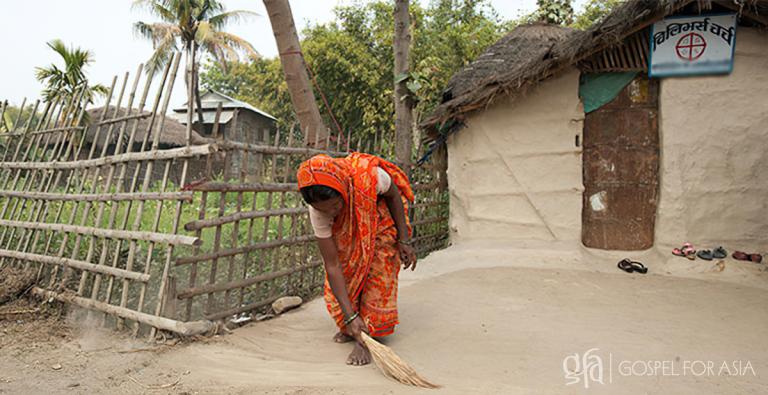
After this miracle, the entire family began worshiping Jesus at the local church. Sundar’s father shared the testimony of his son to their neighbors, who began asking him to pray for their needs. Four years later, God also healed Debalal from his lameness. He became a church deacon, and the poor, illiterate man once considered cursed became a pillar of godliness in the community.
Sundar’s family reveled in unfettered happiness. God had done so much for them. A newfound hope kindled in Debalal’s heart—a hope that his sons would surpass him in every way.
Father Martyred When Praying for Sick Man
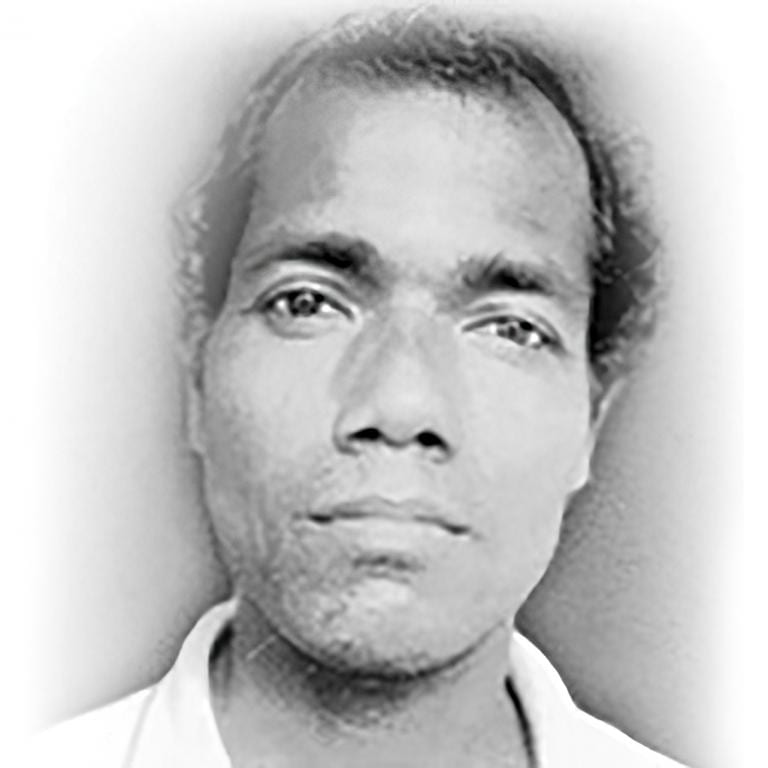
Since Pastor Tuhinsurra lived in another village and oversaw multiple congregations in surrounding towns, Debalal did a lot of the day-to-day work of answering calls for prayer and visiting believers for encouragement. Everyone knew they could call Debalal to help them and he would, often with his wife and sons accompanying him.
A local man, who was in immense pain due to disfiguring burns on his face, frequently called Sundar’s father to pray for him; it was the only time the man experienced relief.
One night, this man begged Debalal to come to his house to pray for him, even though he had already prayed for him twice that day. Reluctantly, Debalal climbed out of bed.
In the man’s little hut, shrouded by deep night, Sundar’s father knelt to pray. As Debalal closed his eyes, the disfigured man took out a knife and brought it down on the back of Debalal’s exposed neck.
News of Debalal’s death spread throughout the village, and old, familiar taunts swirled around Sundar’s mother and her sons: This family was cursed. Fear began to consume Sundar.
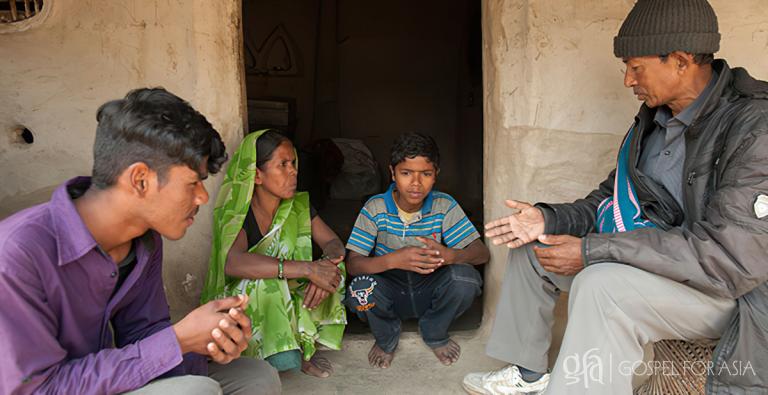
Pastor Tuhinsurra, who had worked closely with his father, sat with the family in their grief. The comfort he offered from God’s Word was the comfort he needed too.
As the community reeled in the wake of such violence, neighbors talked of sending Sundar away to work to support his family. How else would the family survive now?
But Pastor Tuhinsurra helped the family pick up the pieces of their lives, and he sensed the Lord had a different plan for Sundar.
“After I knew my father had gone to be with the Lord, there was uncertainty in front of me and I feared,” Sundar recalls. “Now who will take care of us? Who will I call father?”
Crossroads Leads to Spiritual Transformation
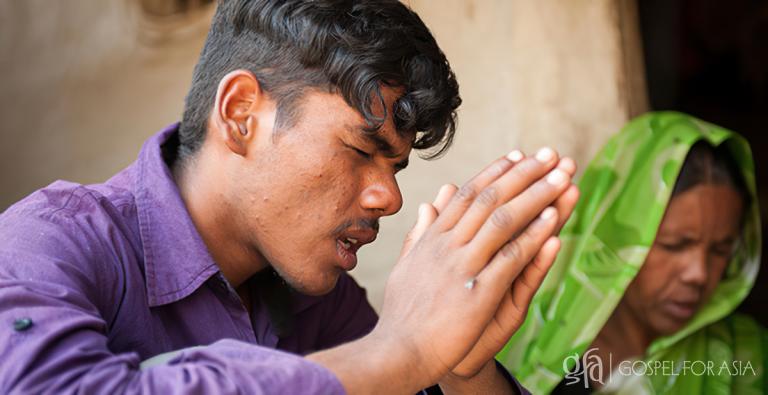
Sundar’s pastor encouraged the young man to stay with his ministry leader, Gospel for Asia (GFA) missionary pastor Kanish, while Sundar wrestled with his future.
Pastor Kanish and his wife welcomed Sundar into their home and showed him to his room, their eyes shimmering with compassion and concern. Their home was a refuge to help Sundar figure out what to do next and process the death of his father, free from community pressure and taunts.
Sundar’s days took on the structure of the household: mornings filled with family prayers, followed by breakfast and study; afternoons and evenings busy with ministry activities. Kanish guided Sundar, teaching him to trust the Lord.
Despite the miraculous healings in his family and years of listening to his father share God’s Word, Sundar had not yet decided for himself what he would do about the message of God’s love.
His father’s death jarred Sundar out of his indecision, setting a crossroads before him. He knew he must either walk away or put his faith in Jesus. It was time to decide.
“During that time, I did not understand anything, and I was so discouraged,” Sundar remembers.
In hindsight, he recognizes this as a turning point in his life: “Through this incident, my life was changed. There and then I believed in Jesus Christ as my personal Savior and Lord.”
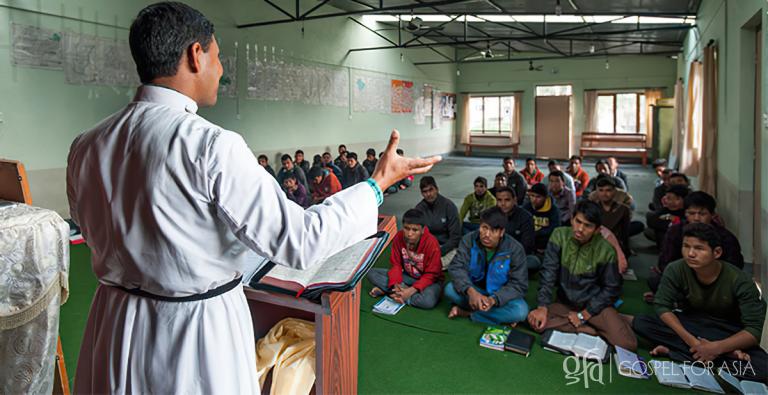
The three months Sundar stayed with Kanish’s family were vital to his personal and spiritual foundation. Seeing Sundar’s lack of education, Pastor Kanish taught him how to read and write using the Bible. Sundar wrote out the first five books of the Bible and read aloud the book of Proverbs each day. As Sundar grew in his literacy skills, he also absorbed spiritual lessons. He was grateful to have a mentor to help him through the dark valley of his father’s death.
“Pastor Kanish really encouraged me from the Word of God and helped me pray,” Sundar says. “Because of his motivation and encouragement, I have been strong in the Lord and I am growing in the Lord.”
Now empowered by the Holy Spirit, Sundar was like a sponge, soaking up the everything he was taught. Pastor Kanish gave him more and more responsibilities as he saw Sundar rising to every challenge.
“This boy was very keen and very mature in understanding,” Pastor Kanish remembers. “We have our cottage meetings four days a week, so I used to take him … and encouraged him to lead the worship service. … He was very faithful.”
Sundar devoured the Bible during this time, letting the comforting words of God wash over his hurting heart. He found solace, love and purpose in the rich, living words.
Sundar began to focus his prayers on the future.
Called by God to Forgive His Father’s Murderer
God’s forgiveness continued to work in Sundar’s heart. As he thought about the call to extend to others the same forgiveness he had experienced, there was one face that rose from the mist of memory, a face that was scarred and contorted in pain, the face of the man who had delivered his father’s death blow. Sundar knew he had to forgive his father’s murderer.
Relinquishing his desire for vengeance, Sundar prayed for this man and felt a supernatural love dislodge his hate. In this one act of trading self-focused retaliation for others-focused transformation, Sundar took a huge leap in his spiritual journey.
“Please pray for the person, Kumar, who murdered my father,” Sundar urges while sharing his prayer requests with other believers. “Even though he is in jail, I pray that his heart will be changed. Please join with me in prayer that he may receive the Lord.”
As Sundar’s love for Kumar grew, it opened the door of his heart to love anyone. Kumar needed Jesus, just as Sundar had. So did thousands of others in villages scattered across his beloved country. God was calling Sundar to be a missionary, answering the cherished wish of his father’s heart.
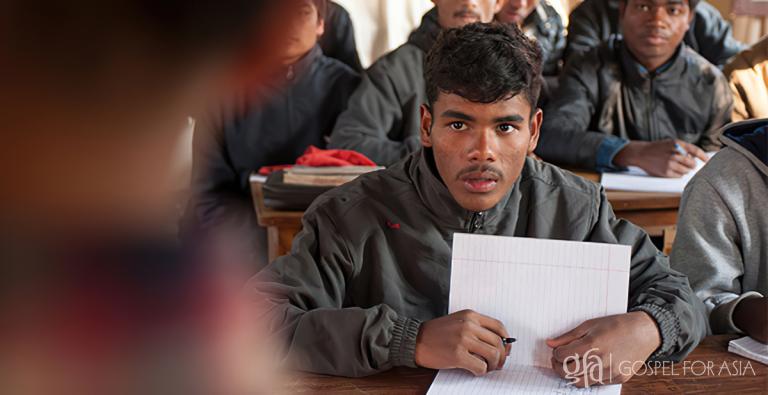
Sundar spent the next three years in Bible college. He thought about his father often during this time, about his father’s sacrifice. His father had given everything to Jesus, including his very life.
“During [that time] I read Matthew 5:10: ‘Blessed is the man who is persecuted,’” Sundar recalls. “That greatly encouraged me.”
A passion to see lives transformed by Jesus grew in Sundar as he realized how many men, women, boys and girls had yet to hear about the Savior’s love. Visions of villages tucked into the ripples and folds of the Himalayan foothills, each a replica of his own hometown, deepened Sundar’s determination to serve the Lord as a missionary.
The idea that he, who was born blind, impoverished and obscure, could make a difference in people’s lives seemed incredible. But he would dedicate his life to that very end.
“There are so many people in the world, people are perishing … without Jesus,” Sundar says. “So, my vision is … to preach the [Good News] to those people who have never heard.”
Gospel for Asia Missionary Ministry Grows in Answer to Prayer
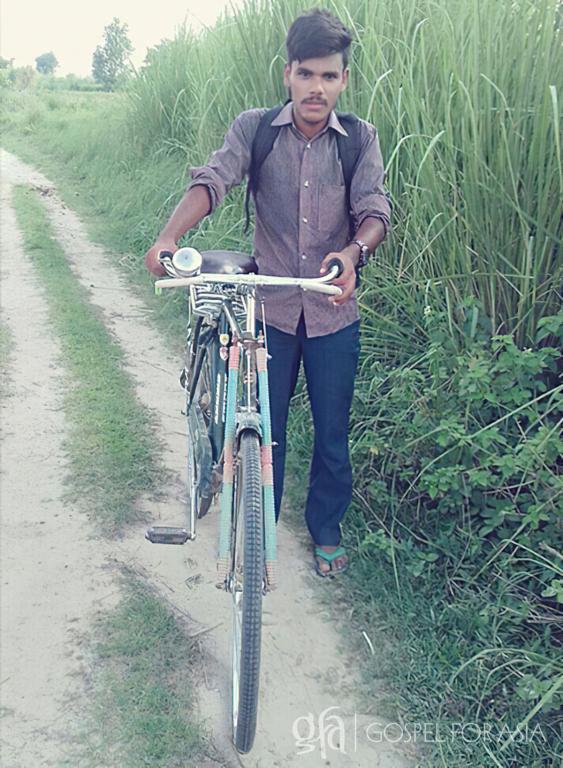
The area God called Sundar to work in has many villages dotting the hilly terrain, where rivers of melted snow cut gouges into the landscape before winding their way to the plains, where rural inhabitants cultivate the land. Millions of people live in these villages scattered across hundreds of miles.
After graduation, Sundar moved to one of these little villages, more than 100 miles west of his hometown, but in landscape, climate and culture, it could have been the town next door. He met people who looked and talked just like him. They ate the same food as him, and he understood the struggles of their lives.
There was no church in the village; his ministry started from scratch. The years at his father’s side, under Pastor Kanish’s mentorship and in Bible college had all prepared Sundar for this time. The Lord had called him; now it was time to get to work.
This area was ready to receive God’s Word, like a fertile field, tilled and waiting for seed to be planted.
In his first year, Sundar saw the Lord work in amazing ways. Fifteen people came to know the love of Christ because of Sundar’s faithful testimony and prayers, and a prayer fellowship started. Seeing this fruit, Sundar was confident the Lord would grow them into a thriving church.
Many other villages nearby also needed to hear the message of God’s love. Sundar prayed God would provide him a bicycle so he could visit more communities and expand his ministry. Within a year, God answered his prayers and the radius of Sundar’s influence stretched many more miles.
“I was really lacking a bicycle for my ministry and other works,” Sundar shares. “I was praying to God for a new bicycle, and God answered my prayers.”
Through the efforts of Sundar and the many other Gospel for Asia missionaries serving in the region, 42 new villages heard the Good News, thousands of tracts were distributed, and hundreds of people experienced Christ’s forgiveness in 2019.
Sundar continues to serve the Lord in the remote foothills of the Himalayas. He pedals to surrounding villages, making sure everyone knows about the Savior who died for them, and he is no longer alone in his work. Sundar is married and has a daughter; the family serves the Lord together. The memories of his father and his mentor inspire and encourage Sundar, spurring him on in ministry.
As Sundar is only a recent graduate, most of his ministry is still before him. But God promises that those who lose their lives for Him shall find life. The boy born blind, obscure and impoverished has found his calling and life in the grace and love of God.
God Calls Workers and Supporters
God is raising up men and women in nations where the greatest concentration of people who have not yet heard the Good News live, and He is calling them to display His love to their own people. These Gospel for Asia national missionary are able to minster in ways that many other cannot. They’ve struggled and lived through common hardships of people in their communities, such as poverty, discrimination and lack of opportunities. Yet they’ve seen God intervene in these struggles, often in miraculous ways, and have discovered alternative paths of joy and freedom. Like Sundar, they’re eager to share the hope they found in Christ with their neighbors.
We can empower their ministries through our prayers, through our giving and through our faith, becoming true partners in the work. No one can serve God alone. Every Gospel for Asia national missionary need brothers and sisters who will pray with them, rejoice with them and provide for them.
Sundar’s supporters will share in the fruit of his ministry.
There are many national missionaries in need of support. Become a partner in their ministries today, and see the fruit in eternity.
Source: Gospel for Asia Feature Article, The Birth of a Missionary
Learn more about the Gospel for Asia supported missionary workers who carry a burning desire for people to know the love of God. Through their prayers, dedication and sacrificial love, thousands of men and women have found new life in Christ.
Learn more how to demonstrate God’s love through the gift of Bicycles — to Missionaries, school children, farmers and daily laborers. Through these gifts, people experience Christ’s love.
Click here, to read more blogs on Patheos from Gospel for Asia.
Learn more about Gospel for Asia: Facebook | YouTube | Instagram | LinkedIn | SourceWatch | Integrity | Lawsuit Update | 5 Distinctives | 6 Remarkable Facts | 10 Milestones | Media Room | World Water Crisis | Endorsements | 40th Anniversary | Lawsuit Response |
Notable News about Gospel for Asia: FoxNews, ChristianPost, NYPost, MissionsBox


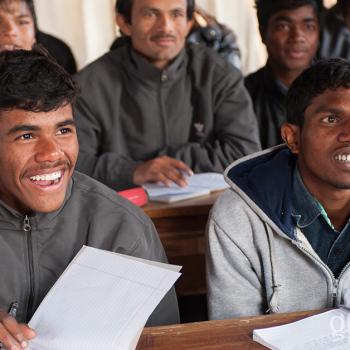
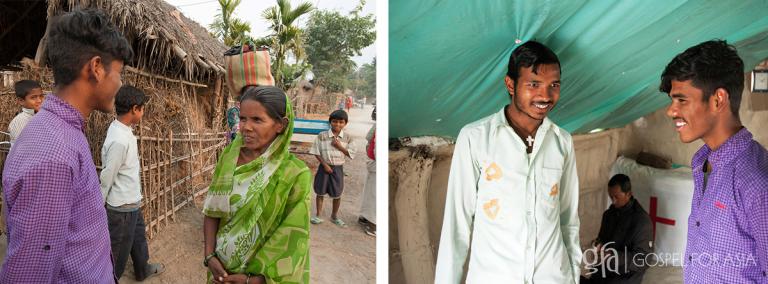
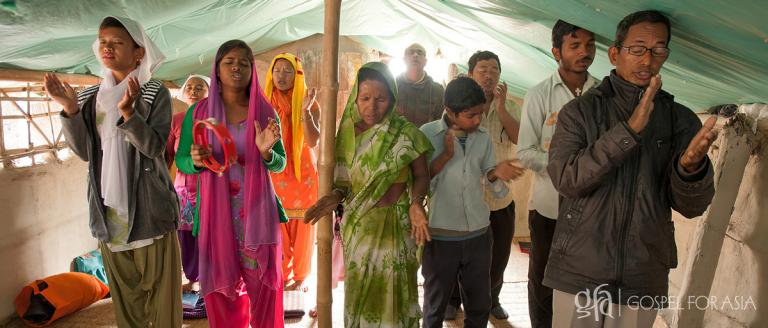
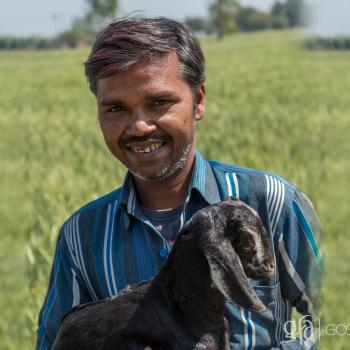
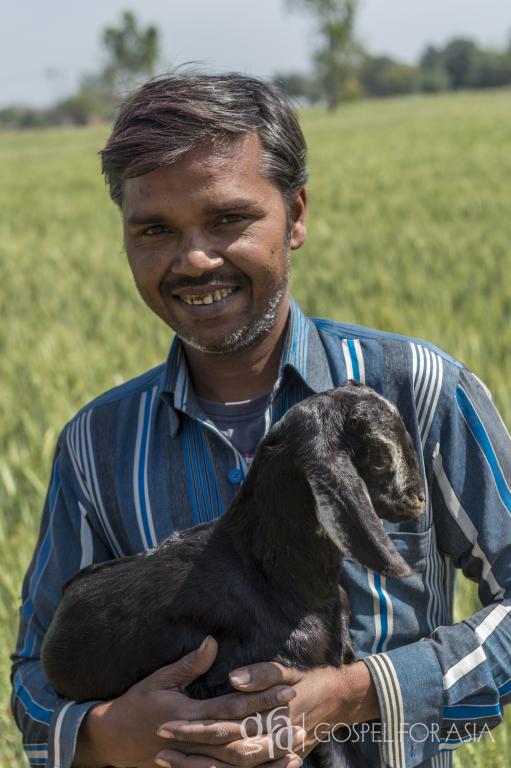
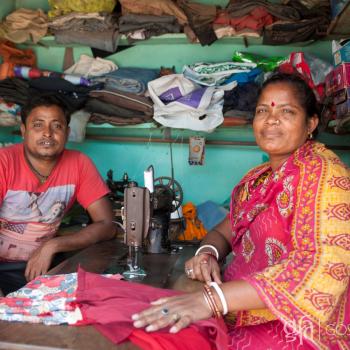
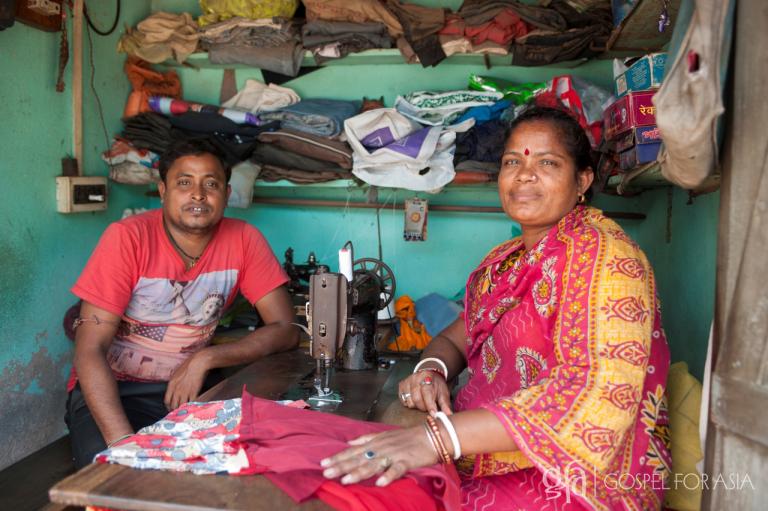
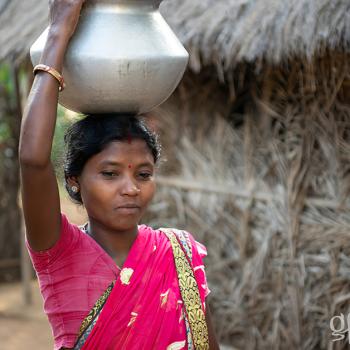
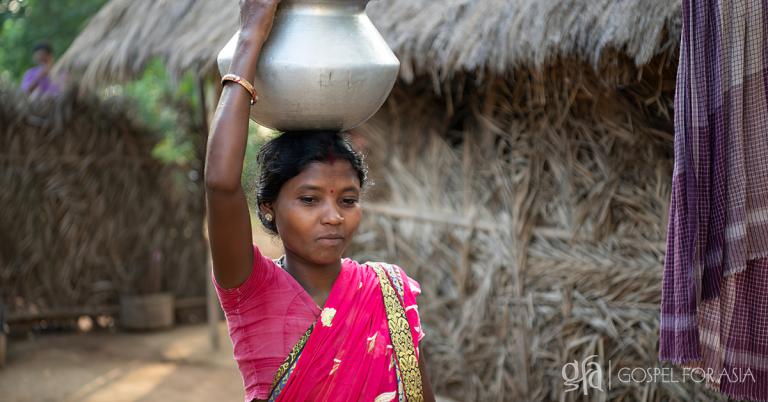
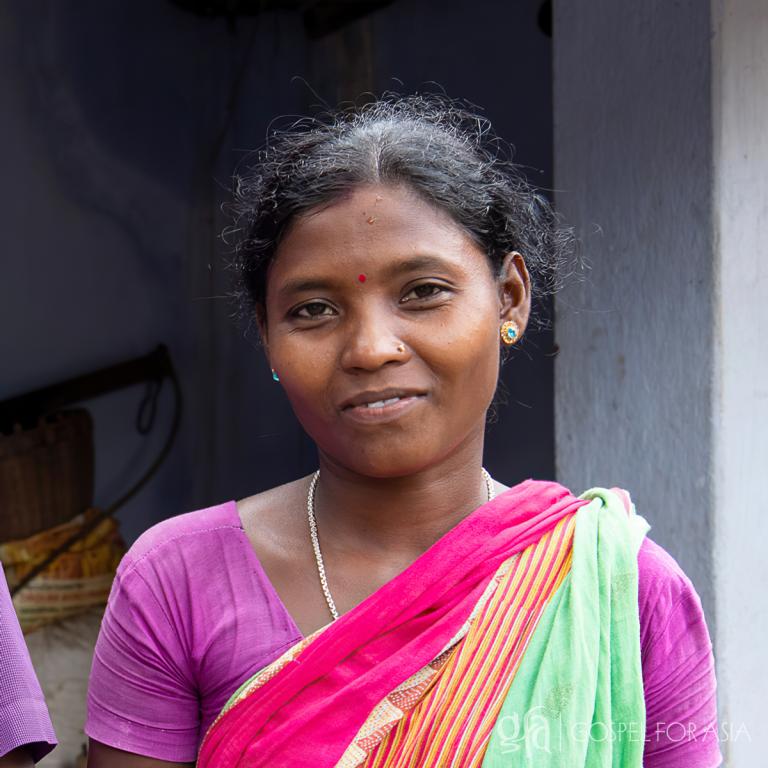
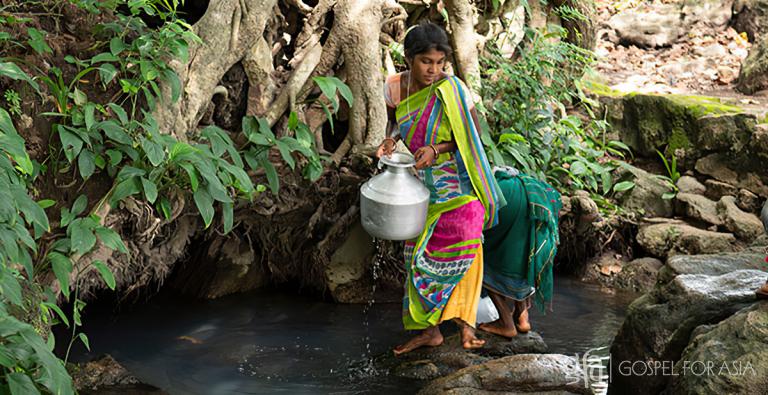
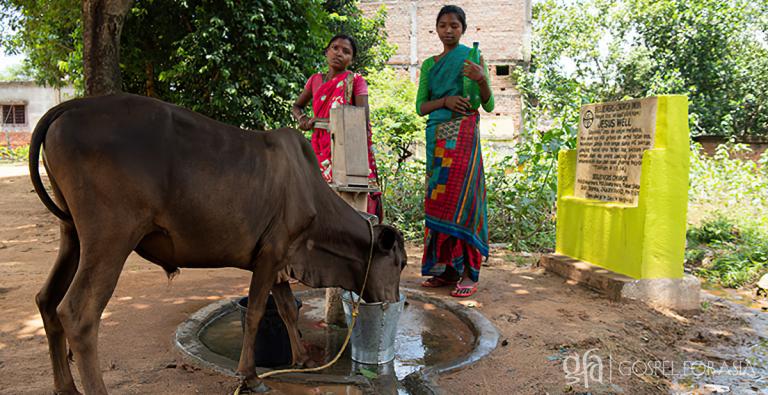
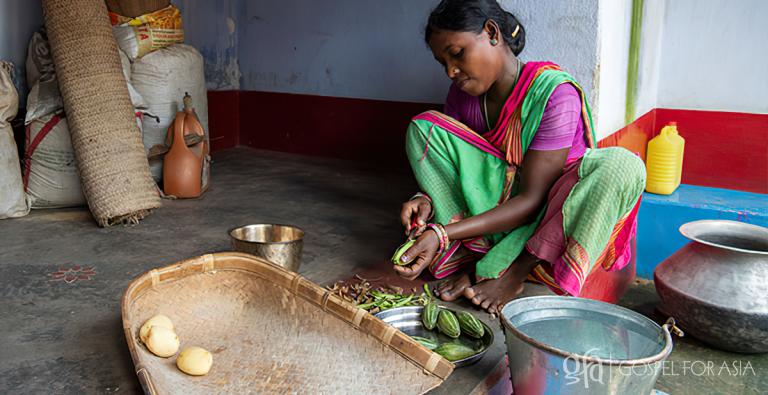
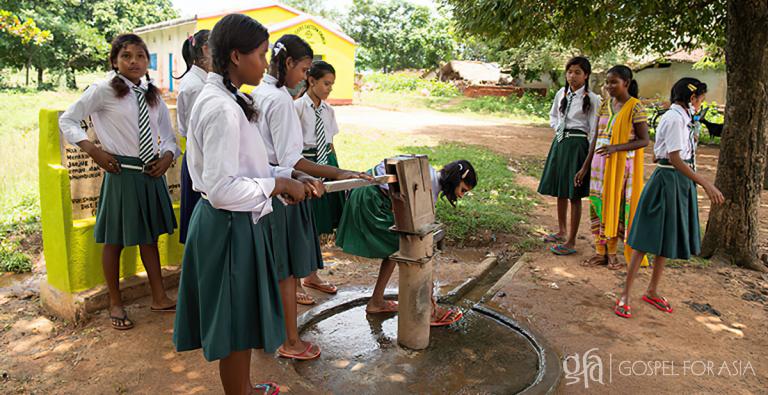
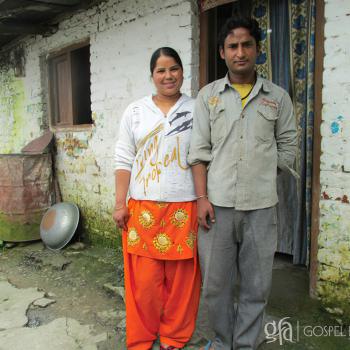
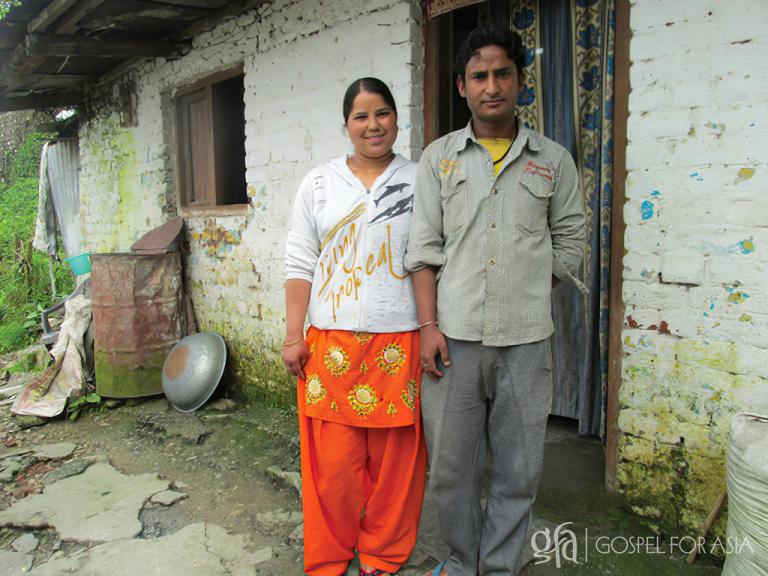
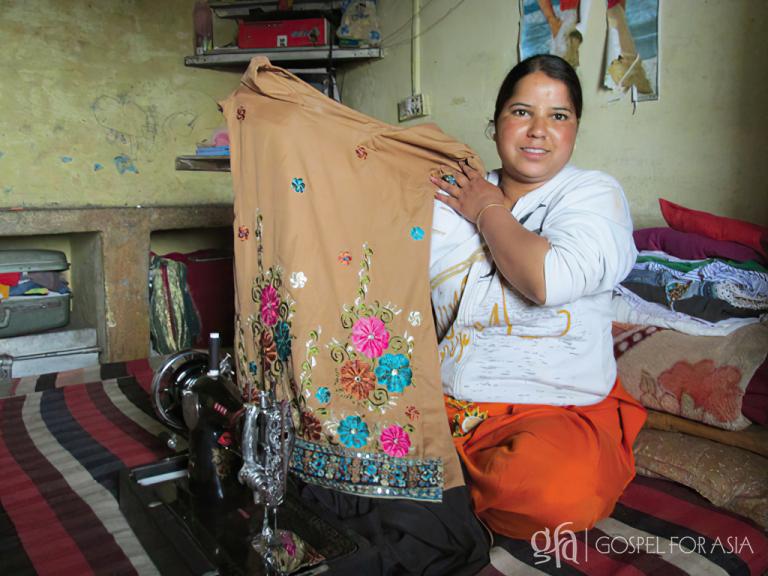
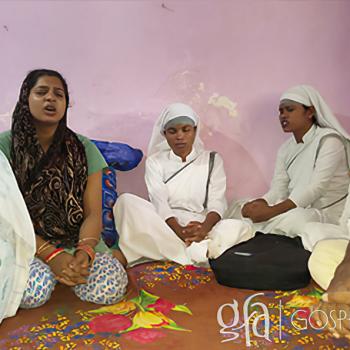
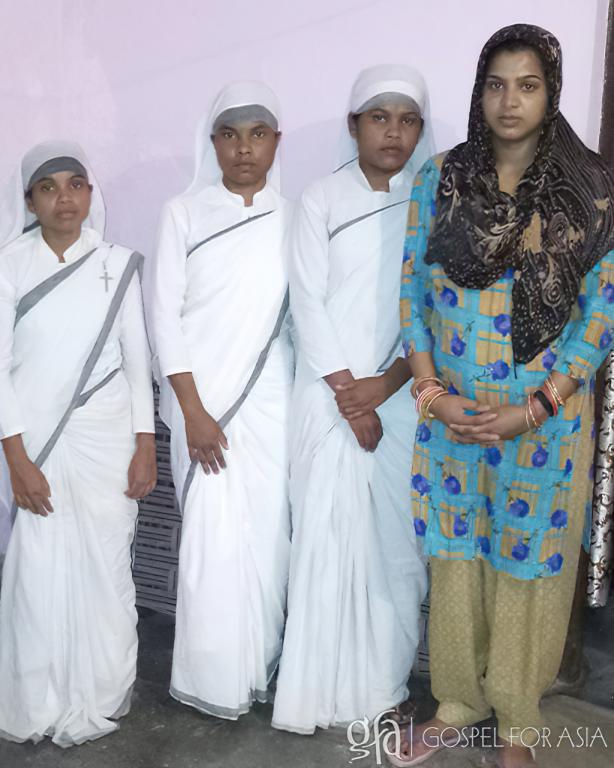
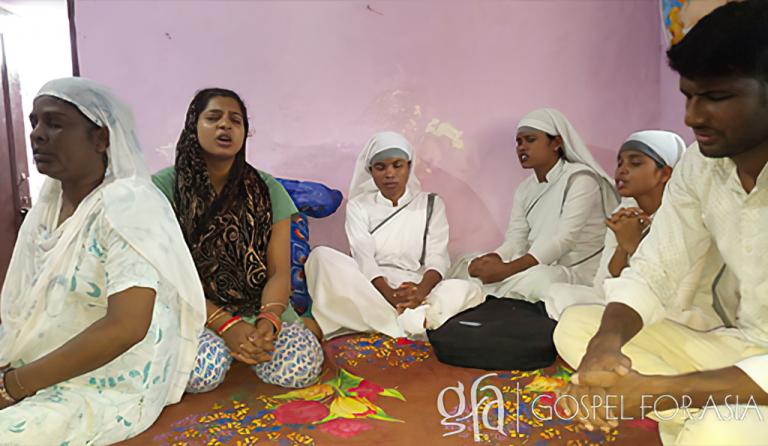
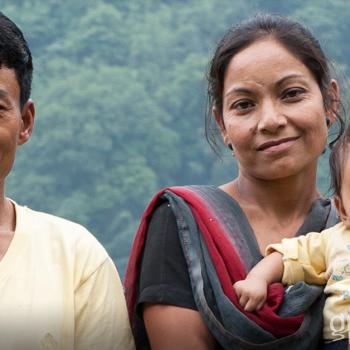
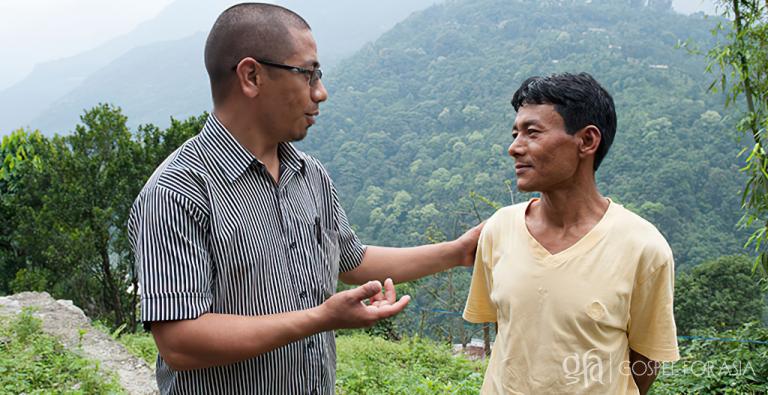
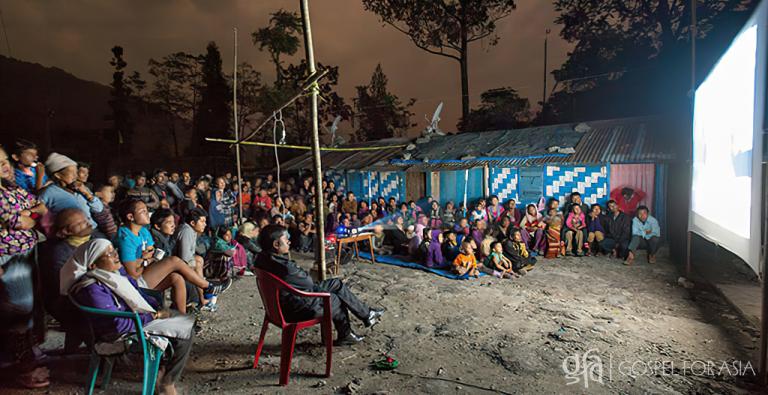
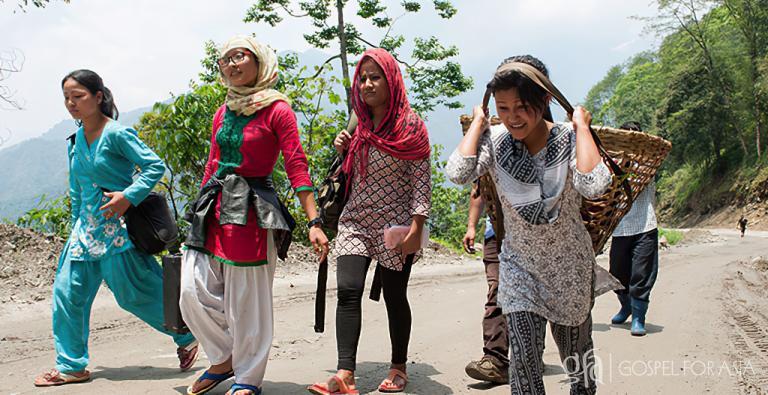
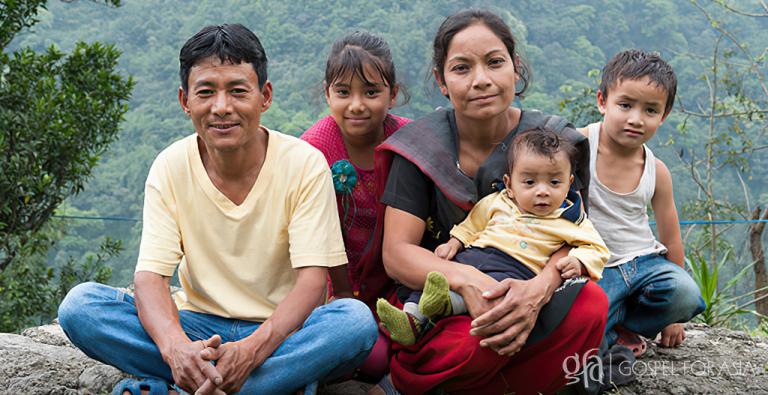
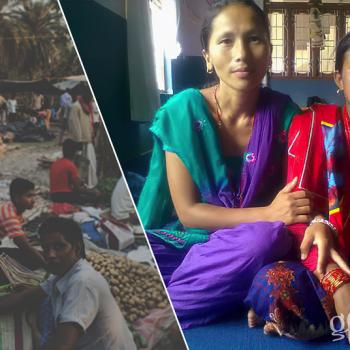
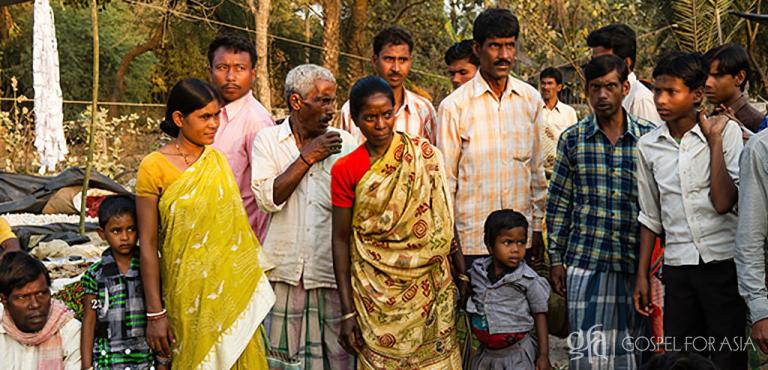
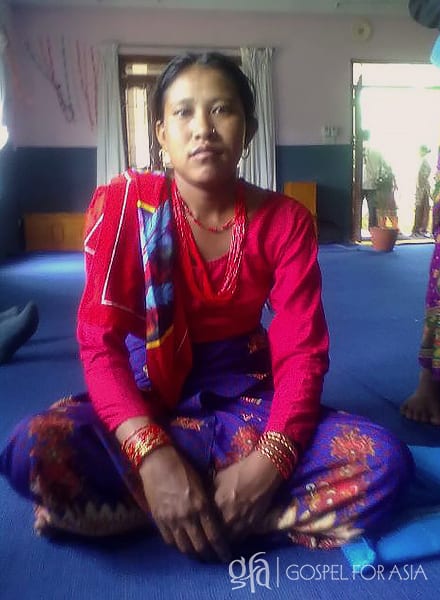
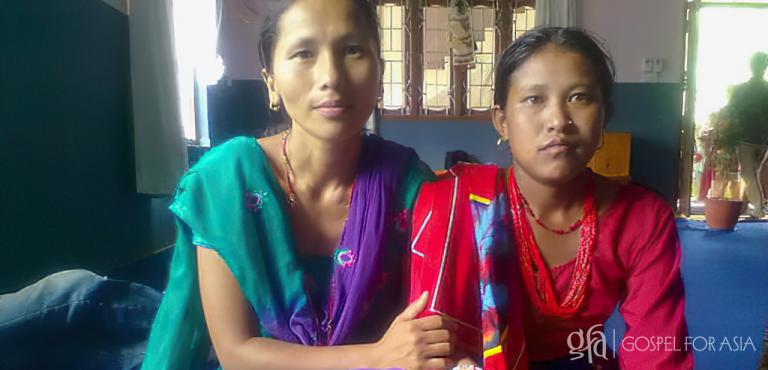
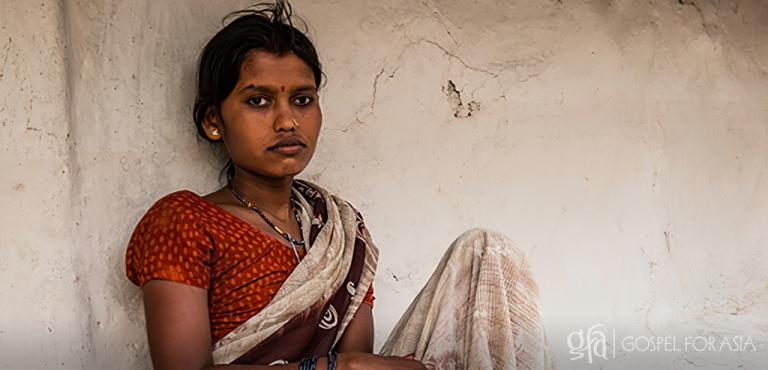
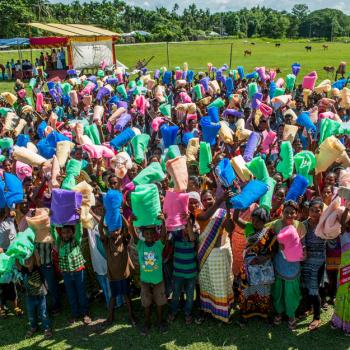
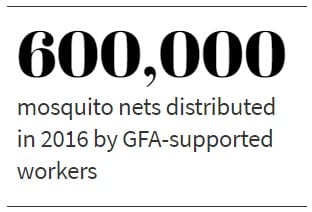 One of the specific health ministries
One of the specific health ministries 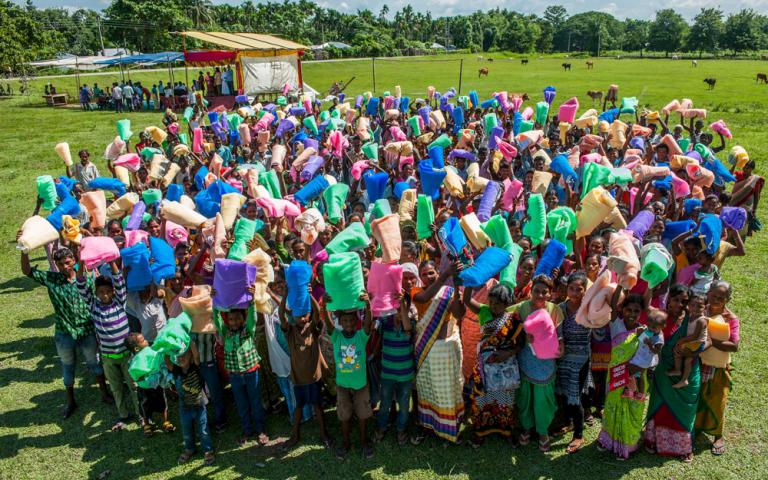
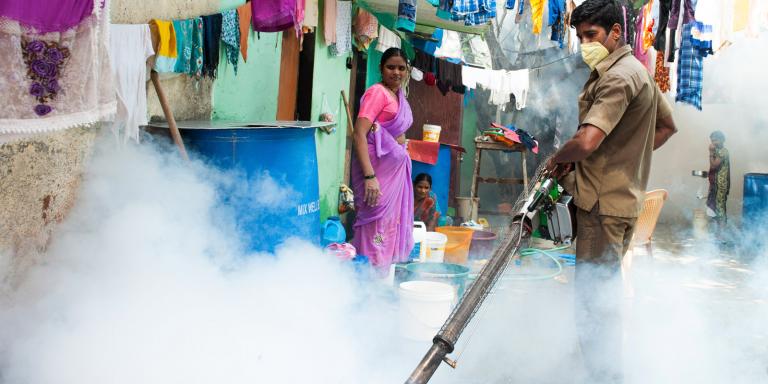
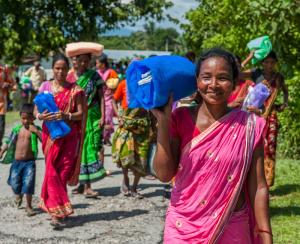

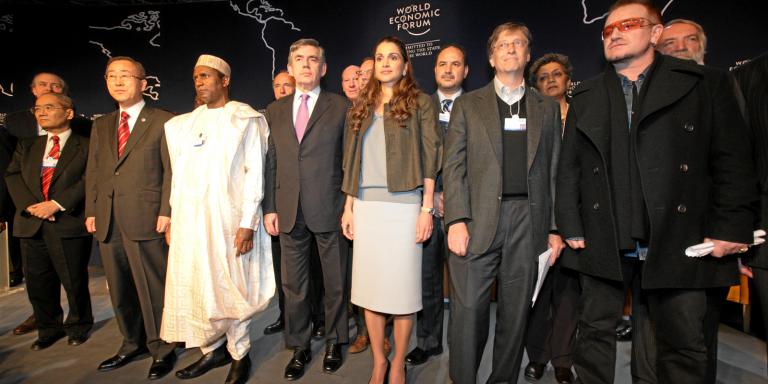
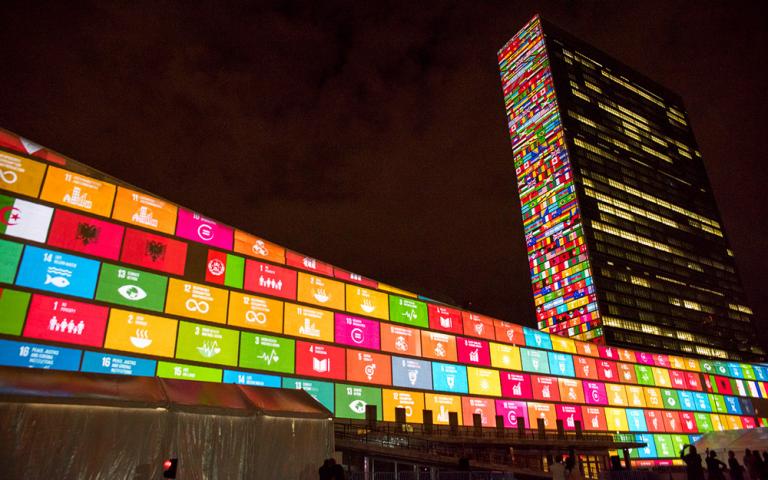

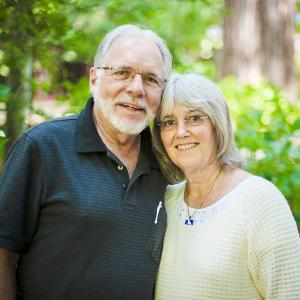
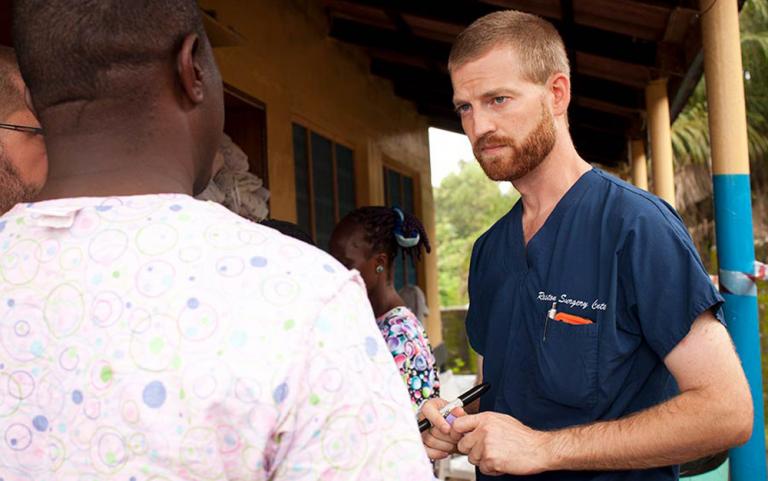
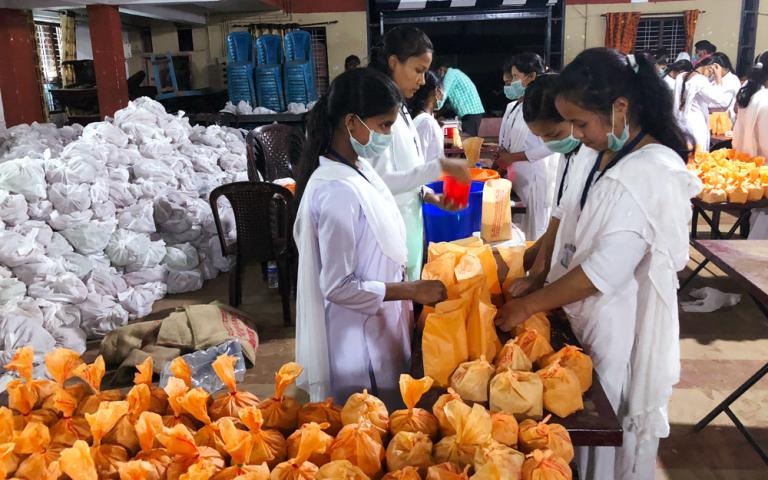
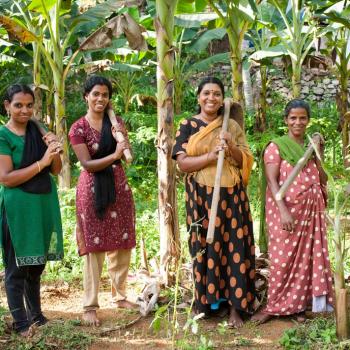
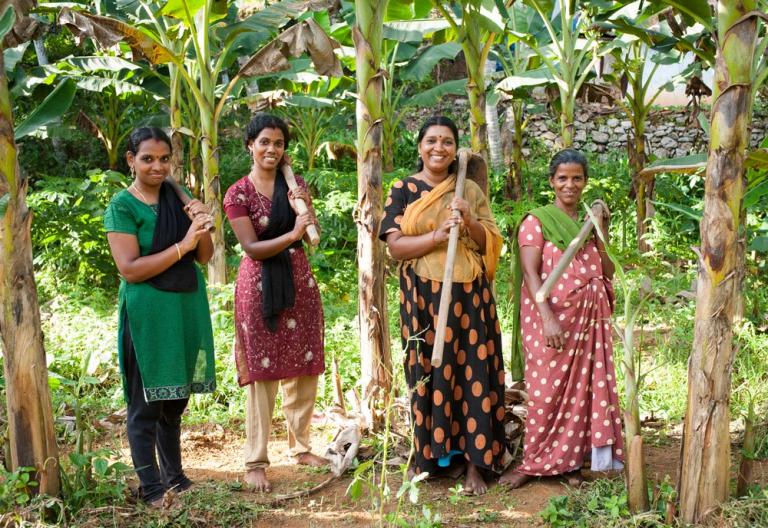
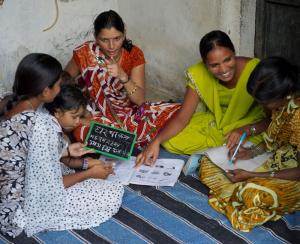
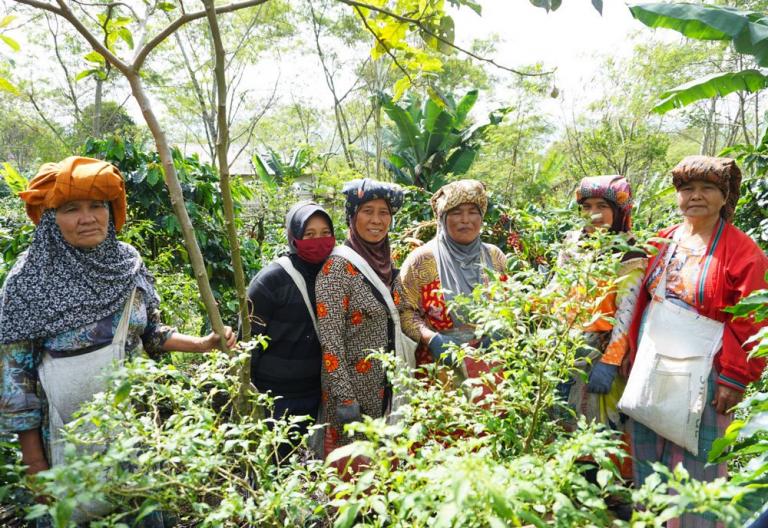
 Forgo that special cup of coffee for a season and donate the money you save to an organization or charity involved in poverty-alleviation efforts.
Forgo that special cup of coffee for a season and donate the money you save to an organization or charity involved in poverty-alleviation efforts. Identify one long-term change you could make in your spending to free up money to support the ongoing work among the poor facilitated by
Identify one long-term change you could make in your spending to free up money to support the ongoing work among the poor facilitated by 
